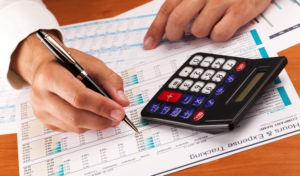
Under current tax law, investment-related expenses—including the cost of subscriptions to financial services, clerical costs, and home office expenses—aren’t deductible through 2025 if the costs are considered investment expenses for the production of income. However, these costs are deductible if they’re considered trade or business expenses.
Although production-of-income expenses were deductible for years before 2018, they were subject to a 2%-of-adjusted-gross-income floor because they were included in miscellaneous itemized deductions.
Barring any changes, these rules are scheduled to return after 2025—but since qualifying for trade or business expense treatment is more advantageous now, you’ll want to know which category your investment expenses fall into if you do a significant amount of trading.
Taxpayers looking to deduct their investment-related expenses as business expenses need to be engaged in a trade or business—and the U.S. Supreme Court has ruled that individual taxpayers aren’t engaged in a trade or business simply because they manage their own securities investments, regardless of how much work is required.
Distinguishing traders from investors
Taxpayers may be considered a trader, meaning that they’re engaged in a trade or business, rather than an investor, who isn’t, if they can demonstrate that their investment activities rise to the level of operating a trade or business.
Traders are entitled to deduct their investment-related expenses as business expenses and may also deduct home office expenses if they use their home office exclusively as their principal place of business on a regular basis. Investors, by contrast, are not entitled to home office deductions because their investment activities aren’t considered a trade or business.
There’s been extensive litigation on whether or not individual taxpayers qualify as traders or investors since the Supreme Court made its ruling. In response, the U.S. Tax Court has created a two-part test that a taxpayer must satisfy in order to be classified as a trader.
Under this test, both of the following must be true in order for a taxpayer’s investment activities to be considered a trade or business:
- The taxpayer’s trading must be substantial, meaning that sporadic trading won’t qualify as a trade or business
- The taxpayer must seek to profit from short-term market swings, rather than from holding onto long-term investments
Traders must seek short-term profits
Regular, extensive, and continuous investment activities aren’t necessarily sufficient for determining that a taxpayer is a trader. Taxpayers who wish to be considered traders must demonstrate that they attempt to profit on a short-term basis by buying and selling securities with reasonable frequency. In fact, one taxpayer who made more than 1,000 trades a year and averaged about $16 million annually in trading activities was held to be an investor rather than a trader since the holding periods for their stocks were about one year on average.
If you have questions or need help determining whether you’re considered an investor or a trader for tax purposes, contact us.